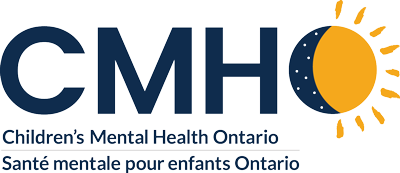E2-1: The Road Ahead: Quality of Life Trajectories After Treatment
Within the child and youth mental health sector, there is a notable gap in understanding the post-service well-being of individuals who have received mental health services. This scarcity of information stems from methodological and technological challenges associated with tracking clients post-discharge, hindering our understanding of how children and youth fare after receiving mental health services. To address this knowledge gap, Kinark Child and Family Services is conducting a cross-sectional study, examining quality of life of children and youth at multiple time points, including admission, discharge, and 3, 6, 9, and 12 months post-discharge.
This study utilizes caregiver and youth reports to assess the functioning of children and youth across physical, emotional, social, and academic domains. The primary research question aims to determine the duration of sustained improvements in quality of life after discharge from a child and youth mental health treatment program. Additionally, the study explores whether the trajectory of quality of life differs based on presenting problems, severity levels, or risk factors observed at admission. This presentation will include a discussion of preliminary findings providing valuable insights into the enduring impact of mental health services on the quality of life of children and youth. The implications of this research may impact how treatment providers follow-up with families, make referrals for services, enhance system coordination, and develop interventions that support sustained improvements in quality of life post-discharge.
Presenters:
Claire McGill, PhD is a Senior Research Advisor with the Planning and Research Department at Kinark Child and Family Services. Claire contributes to research projects that focus on program evaluation, assessment tool testing and development, outcome measurement and applied research. Claire completed a PhD in Applied Social Psychology at the University of Guelph.
Kelli Phythian is the Manager of Research and Evaluation at Kinark Child and Family Services. Kelli is responsible for overseeing research and evaluation activities that support strategic planning, quality improvement initiatives, and clinical decision-making. She oversees the evaluation of programs, services, and change initiatives across the organization, as well as knowledge translation activities associated with this work. Kelli completed a Ph.D. in sociology at Western University.
E2-2: Aftercare: Helping Young People and their Caregivers Access Services and Integrate into their Community
The Youthdale Aftercare Program, initiated in October 2021, is a crucial resource for young individuals transitioning from secure treatment and intensive live-in mental health services back into their communities. This three-month program adopts an interdisciplinary approach that involves various professionals, including psychiatrists, primary care physicians, nursing staff, social workers, and child & youth counsellors. The Aftercare Program serves as a critical bridge, offering ongoing support, guidance, and resources that are essential for the young people to navigate the challenges of waitlists for step down services and returning to their daily lives. This program provides a structured continuum of care that helps prevent relapses, fosters emotional stability, and empowers young people to continue to build sustainable coping strategies. The program’s establishment was prompted by recommendations from the Auditor General and insights gathered from young people, families, and caregivers. It provides tailored guidance, therapeutic interventions, and continuous monitoring, playing a vital role in facilitating these individuals’ recovery journey.
Presenters:
Shawnna Balasingham is the Executive Director, Clinical and Service Excellence at Youthdale.
Shawnna graduated with Honours in Bachelor of Science and received her Master of Science in Social Work with a specialization in advanced clinical practice in the practice of health, mental health, and disabilities. She is also a registered professional with the OCSWSSW and the Canadian College of Health Leaders. Shawnna drives continuous improvement, innovation, and change in an effort to elevate clinical and service excellence in the best interest of all community stakeholders and the young people and caregivers we support.
Jason Langer started at Youthdale in 2004. He has worked in many programs and departments over the years including Intensive Treatment, Secure Treatment, Inpatient Services, and Quality as well as overseeing accreditation, policies, records, privacy, and quality standards across the organization. Jason is the Senior Director of Quality and Evaluation and supports all Youthdale services dedicated to providing effective treatment to clients and caregivers struggling with complex mental health needs. Jason leads many strategic initiatives and demonstrates a strong commitment to a continuous quality improvement culture at Youthdale.
Kiran Johal joined Youthdale in 2022 in the Aftercare Department. Kiran has a background in Social Work with experience working in the mental health field with young people and adults. She supports young people and caregivers with their transition from Intensive Services offering service navigation and therapeutic support. Kiran is committed to providing client and family centered care to diverse populations.
Jacob Hinves has worked at Youthdale since 2014 as a child and youth counsellor progressing from placement student to relief staff, full-time staff, group leader, and team lead. Jacob has always been dedicated to delivering high-quality services, demonstrating a willingness to support agency needs and aiding various programs and initiatives. Jacob currently works on the Aftercare Team, a program introduced in response to direct feedback from clients and caregivers, helping to maintain therapeutic momentum and navigate community resources as clients transition out of service.

